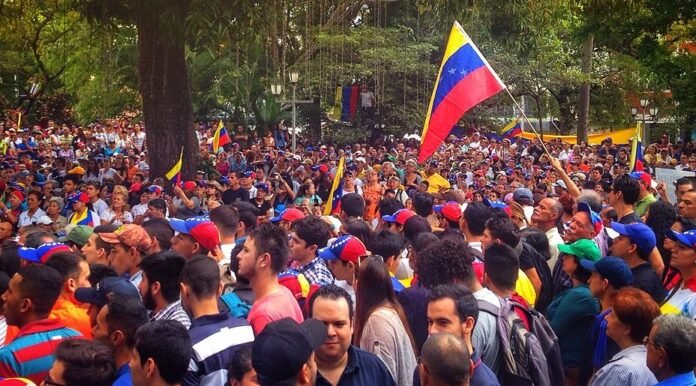Venezuela is facing severe political unrest in 2025, with President Nicolas Maduro’s third-term inauguration sparking intense opposition confrontations. Accusations of election fraud have fueled public dissent, deepening divisions and highlighting the governance challenges at the heart of Venezuela’s political unrest.
Historical patterns of electoral discontent and governmental control characterize Maduro’s administration, but this term’s onset has intensified calls for electoral transparency and democratic reforms. The opposition is unified in their demand for electoral integrity, staging large-scale protests indicative of widespread disillusionment with Maduro’s governance.
International observers have criticized Venezuela’s electoral processes, siding with the opposition’s call for transparent and fair governance. Maduro’s defiance of
international criticism and his ongoing consolidation of power exacerbate these tensions, escalating the possibility of civil unrest.
Despite these challenges, the opposition’s cohesion and their ability to present a viable alternative to Maduro’s rule remain critical factors in Venezuela’s path forward. Dialogue avenues, encouraged by international organizations, are essential for addressing the democratic deficit and human rights concerns emerging from this crisis.
As the nation navigates its political future, the broader implications for Latin American regional dynamics and international economic relations will unfold, underscoring Venezuela’s complex socio-political landscape.
Embed from Getty ImagesPerspectives
Perspective 1: Political scientists describe Venezuela’s situation as symptomatic of broader Latin American struggles with authoritarian governance and democratic erosion. They observe that Maduro’s leadership style, characterized by its centralized control and alleged electoral manipulation, is compatible with regional patterns of populism. This perspective highlights the cyclical nature of governance crises in Venezuela, emphasizing the need for institutional reforms and strengthening civil society to counteract democratic backsliding.
Sources:
Fox News
TIME
Perspective 2: Human rights organizations express concern over Venezuela’s declining democratic health and potential human rights violations amid growing political protests. Reports of government crackdowns and restricted media freedoms underline fears of escalating violence and abuse of power against opposition and civilian groups. Advocacy from these organizations emphasizes international support for democratic practices and the protection of human rights as vital components in resolving the crisis.
Sources:
Human Rights Watch
Amnesty International
Perspective 3: Economists warn that Venezuela’s political instability could have severe economic impacts, potentially aggravating the country’s already precarious economic situation. The focus on governance crises detracts from critical economic policy-making, risking further deterioration of living standards and economic isolation. Analysis suggests that addressing political instability is integral to stabilizing Venezuela’s economy and facilitating recovery, with international cooperation being a crucial element in this multifaceted crisis.
Sources:
Financial Times
Bloomberg
